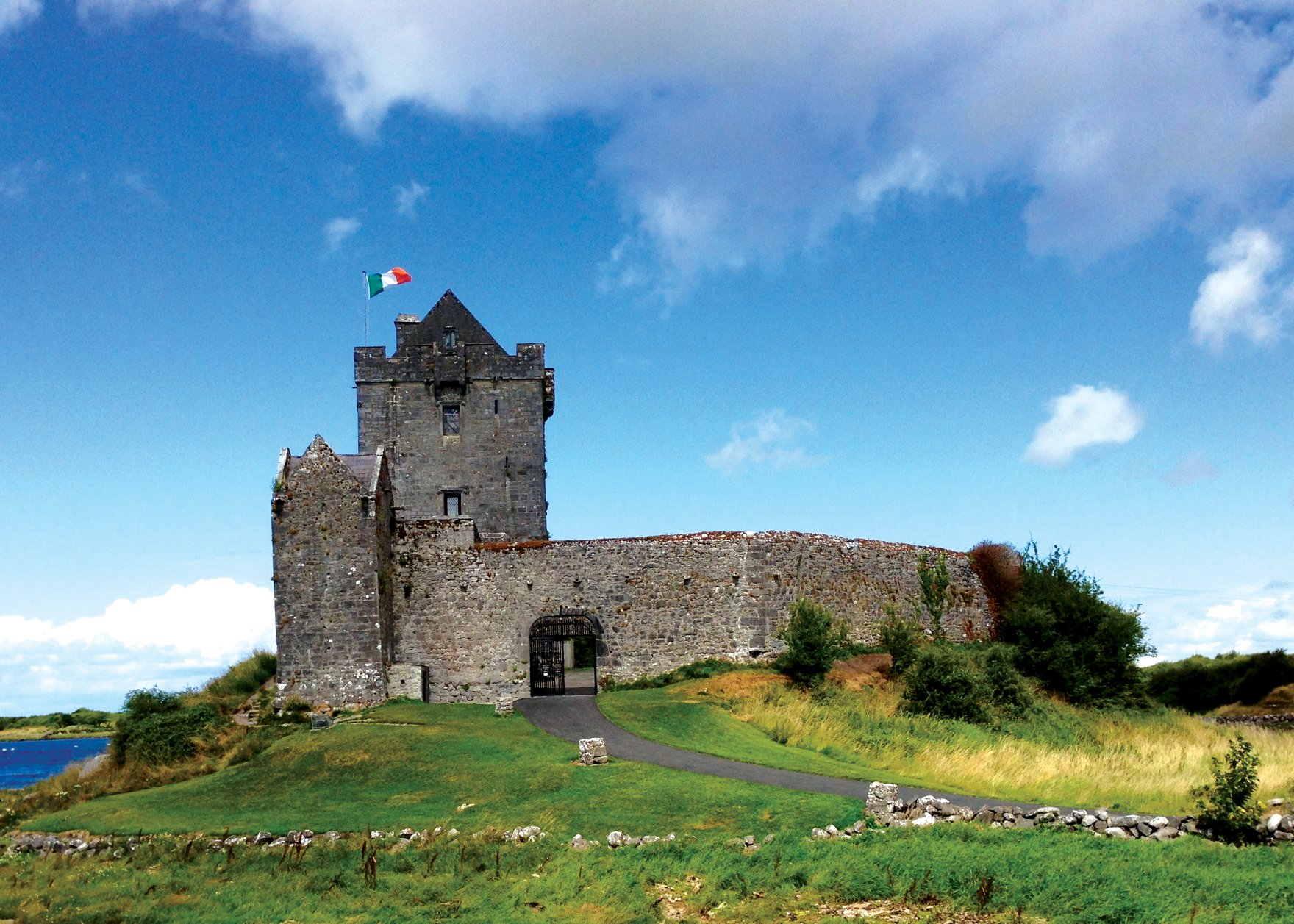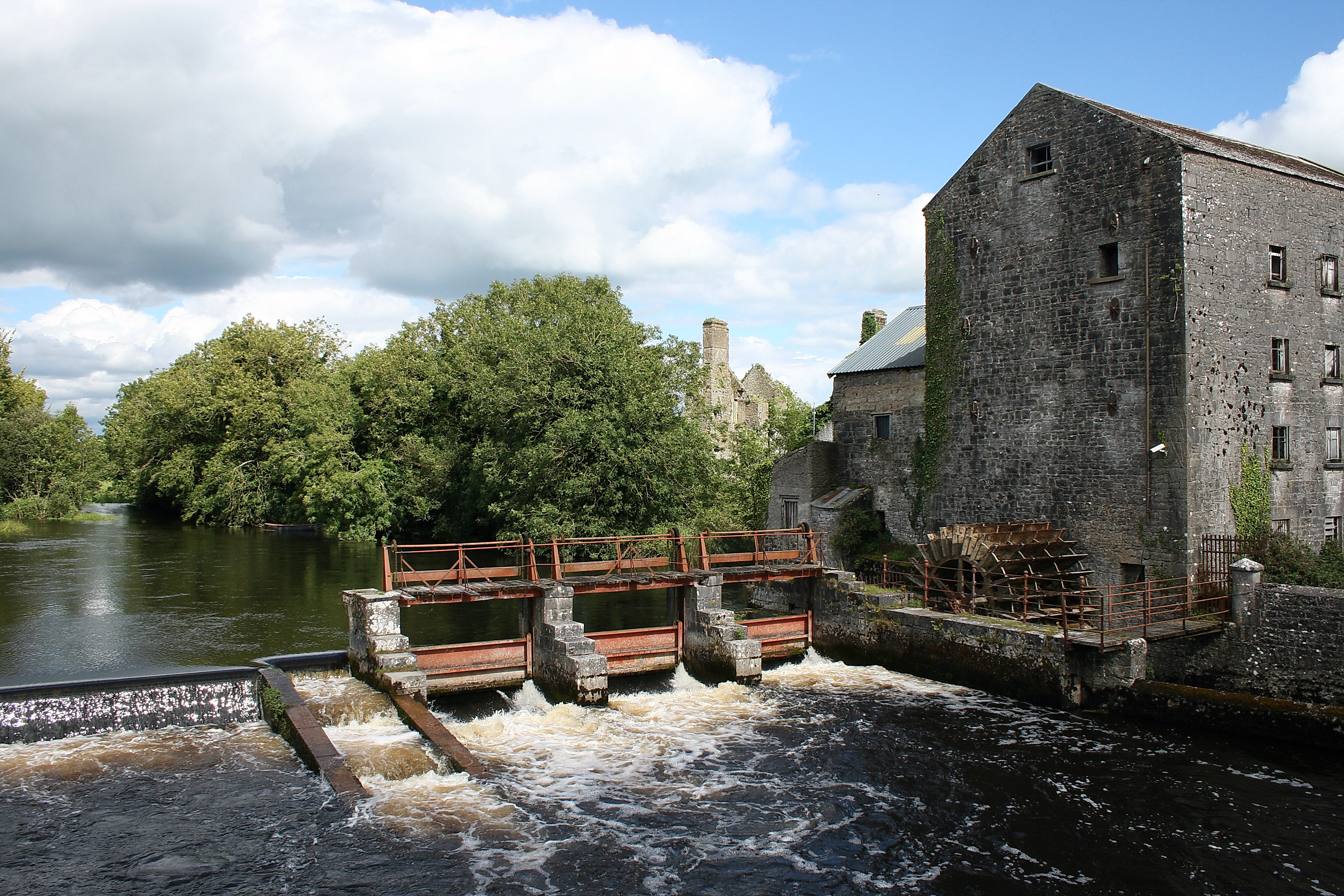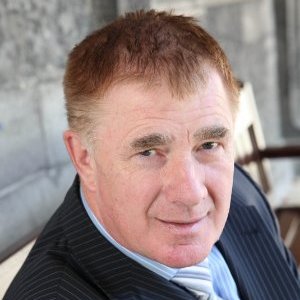|
Action Tuam
Action Tuam was established as a non-profit organisation in 1990 to assist in creating employment in North County Galway, South County Mayo and County Roscommon. Action Tuam is registered in Ireland with the Companies Registration Office (CRO). The organisation offers advice and industrial unit rental to start-up SMEs and entrepreneurs with business ideas with the potential to create employment in the West of Ireland. History The origins of Action Tuam date to the early 1980s and a government decision to close the Greencore sugar factory at Tuam. The sugar factory had been a major source of employment in North Galway, and then Archbishop of Tuam, Joseph Cassidy convened a meeting to discuss the issue of unemployment, at which a task group was formed. The original enterprise centre was set up in 1992 at Tuam Business Park. It attracted several small business, including John Concannon's "JFC Manufacturing", now a multi-national operation. The group converted an old textile fact ... [...More Info...] [...Related Items...] OR: [Wikipedia] [Google] [Baidu] |
Joseph Cassidy (bishop)
Joseph Cassidy (29 October 193331 January 2013) was Bishop of Clonfert from 1982 to 1987 and Archbishop of Tuam from 1987 to 1994. Biography He was born in Charlestown, County Mayo Ireland. He entered Maynooth in 1952, gaining a BD and BA(NUI), and was ordained a priest on 21 June 1959, in Maynooth College, for the Diocese of Achonry. He later transferred to the slightly larger Diocese of Clonfert, where he taught at, and later became President of, St. Joseph's College, Ballinasloe. He was appointed Coadjutor Bishop of Clonfert diocese on 24 August 1979 and received episcopal ordination on 23 September 1979, one week before the historic visit of Pope John Paul II to Ireland. The Principal Consecrator was Archbishop Gaetano Alibrandi; his Principal Co-Consecrators were Archbishop Joseph Cunnane of Tuam and Bishop Thomas Flynn of Achonry. On 1 May 1982, he succeeded to the position of Bishop of Clonfert and spent much time visiting the scattered small communities that make ... [...More Info...] [...Related Items...] OR: [Wikipedia] [Google] [Baidu] |
Tuam
Tuam ( ; ga, Tuaim , meaning 'mound' or 'burial-place') is a town in Ireland and the second-largest settlement in County Galway. It is west of the midlands of Ireland, about north of Galway city. Humans have lived in the area since the Bronze Age while the historic period dates from the sixth century. The town became increasingly important in the 11th and 12th centuries in political and religious aspects of Ireland. The market-based layout of the town and square indicates the importance of commerce. The red Latin cross of the Coat of arms is representative of Tuam's importance as an ecclesiastical centre. The double green flaunches at the sides, represent the two hills or shoulders of Tuam's ancient name, . The two crowns recall the High Kings, Tairrdelbach and Ruaidrí, who were based in Tuam. The broken chariot wheel is a reference to the foundation of the monastic town when St Jarlath's chariot wheel broke. The motto of the town, ''Tuath Thuama go Buan'', translates a ... [...More Info...] [...Related Items...] OR: [Wikipedia] [Google] [Baidu] |
County Galway
"Righteousness and Justice" , anthem = () , image_map = Island of Ireland location map Galway.svg , map_caption = Location in Ireland , area_footnotes = , area_total_km2 = 6151 , area_rank = 2nd , seat_type = County town , seat = Galway , population_total = 276451 , population_density_km2 = auto , population_rank = 5th , population_as_of = 2022 , population_footnotes = , leader_title = Local authorities , leader_name = County Council and City Council , leader_title2 = Dáil constituency , leader_name2 = , leader_title3 = EP constituency , leader_name3 = Midlands–North-West , subdivision_type = Country , subdivision_name = Ireland , subdivision_type1 = Province , subdivision_name1 = Connacht , subdivisi ... [...More Info...] [...Related Items...] OR: [Wikipedia] [Google] [Baidu] |
County Mayo
County Mayo (; ga, Contae Mhaigh Eo, meaning "Plain of the yew trees") is a county in Ireland. In the West of Ireland, in the province of Connacht, it is named after the village of Mayo, now generally known as Mayo Abbey. Mayo County Council is the local authority. The population was 137,231 at the 2022 census. The boundaries of the county, which was formed in 1585, reflect the Mac William Íochtar lordship at that time. Geography It is bounded on the north and west by the Atlantic Ocean; on the south by County Galway; on the east by County Roscommon; and on the northeast by County Sligo. Mayo is the third-largest of Ireland's 32 counties in area and 18th largest in terms of population. It is the second-largest of Connacht's five counties in both size and population. Mayo has of coastline, or approximately 21% of the total coastline of the State. It is one of three counties which claims to have the longest coastline in Ireland, alongside Cork and Donegal. There ... [...More Info...] [...Related Items...] OR: [Wikipedia] [Google] [Baidu] |
County Roscommon
"Steadfast Irish heart" , image_map = Island of Ireland location map Roscommon.svg , subdivision_type = Country , subdivision_name = Ireland , subdivision_type1 = Province , subdivision_name1 = Connacht , subdivision_type2 = Region , subdivision_name2 = Northern and Western , seat_type = County town , seat = Roscommon , leader_title = Local authority , leader_name = County Council , leader_title2 = Dáil constituencies , leader_title3 = EP constituency , leader_name2 = Roscommon–Galway Sligo–Leitrim , leader_name3 = Midlands–North-West , area_total_km2 = 2548 , area_rank = 11th , area_footnotes = , population_total = 69,995 , population_density_km2 = auto , population_as_of = 2022 , population_footnotes = , population_rank = 26th , unemployment_rate = , blank_name_sec1 = Vehicle index ... [...More Info...] [...Related Items...] OR: [Wikipedia] [Google] [Baidu] |
Companies Registration Office (Ireland)
The Companies Registration Office (CRO; ga, An Oifig um Chlárú Cuideachtaí) registers and incorporates companies in Ireland and files their annual returns. The CRO has a number of core functions: *The incorporation of companies. *The receipt and registration of post incorporation documents. *The enforcement of the Companies Acts in relation to the filing obligations of companies. *Making information on companies available to the public. It also registers the names of businesses which are non-limited trading entities such as sole traders and partnerships. It also has the ''Office of the Registry of Friendly Societies'' which registers Industrial & Provident Societies, Friendly Societies and trade unions. In 2019, the Register of Beneficial Ownership was introduced into Ireland. That was implemented on the back of the EU’s Fourth Anti-Money Laundering Directive, which essentially requires all member states to hold adequate, accurate and current information of all beneficia ... [...More Info...] [...Related Items...] OR: [Wikipedia] [Google] [Baidu] |
Small And Medium-sized Enterprises
Small and medium-sized enterprises (SMEs) or small and medium-sized businesses (SMBs) are businesses whose personnel and revenue numbers fall below certain limits. The abbreviation "SME" is used by international organizations such as the World Bank, the European Union, the United Nations, and the World Trade Organization (WTO). In any given national economy, SMEs sometimes outnumber large companies by a wide margin and also employ many more people. For example, Australian SMEs makeup 98% of all Australian businesses, produce one-third of the total GDP (gross domestic product) and employ 4.7 million people. In Chile, in the commercial year 2014, 98.5% of the firms were classified as SMEs. In Tunisia, the self-employed workers alone account for about 28% of the total non-farm employment, and firms with fewer than 100 employees account for about 62% of total employment. The United States' SMEs generate half of all U.S. jobs, but only 40% of GDP. Developing countries tend to have a ... [...More Info...] [...Related Items...] OR: [Wikipedia] [Google] [Baidu] |
Greencore
Greencore Group plc is a food company in Ireland. It was established by the Irish government in 1991, when Irish Sugar was privatised, but today Greencore's products are mainly convenience foods, not only in Ireland but also in the United Kingdom. A major supplier to British and Irish supermarkets, Greencore is the largest sandwich manufacturer in the world. It is listed on the London Stock Exchange. History The company was established in 1926 in Carlow as a private enterprise known as the ''Irish Sugar Manufacturing Company, Limited''. The Sugar Manufacture Act, 1933 was passed to promote self-sufficiency in sugar manufacture; this Act was brought on by a crisis in the industry and resulted in the nationalisation of sugar manufacture. Factories were built in Mallow, Thurles and Tuam, and the company became ''Cómhlucht Siúicre Éireann, Teoranta'', the Irish for ''Irish Sugar Company, Limited''. When run by Michael Joe Costello, Irish Sugar introduced the first electronic c ... [...More Info...] [...Related Items...] OR: [Wikipedia] [Google] [Baidu] |
John Concannon
John Concannon is an Irish businessman, philanthropist, and star of RTÉ's ''The Secret Millionaire''. A native of Kilconly, Tuam, Concannon is the founder of the JFC Group. He left St. Jarlath's school, Tuam, to work on the family farm. In 1987, he invented the Triple Bucket, a product for feeding calves, which was publicised by Gay Byrne on RTÉ's ''The Late Late Show'' that December. The Triple Bucket helped him establish the JFC Group, which over the next thirty-five years helped him become a multi-millionaire, owning factories and sales distribution offices across Ireland, the UK, the Netherlands, Poland, Germany, Belgium, Switzerland and South Africa. In 2011, he participated in RTÉ's ''The Secret Millionaire'', during which he spent a week in west Dublin subsisting on minimum wage and attempting to determine which charity or organisation in the area most deserved financial support. Since then, he has supported Pieta House, which gives aid to people who suffer suicidal ... [...More Info...] [...Related Items...] OR: [Wikipedia] [Google] [Baidu] |
Ruairi Quinn
Ruairi Quinn (born 2 April 1946) is an Irish former Labour Party politician who served as Minister for Education and Skills from 2011 to 2014, Leader of the Labour Party from 1997 to 2002, Deputy Leader of the Labour Party from 1989 to 1997, Minister for Finance from 1994 to 1997, Minister for Enterprise and Employment from 1993 to 1994, Minister for the Public Service from 1986 to 1987, Minister for Labour from 1983 to 1986, Minister of State for Urban Affairs and Housing from 1982 to 1983. He served as a Teachta Dála (TD) for the Dublin South-East constituency from 1977 to 1981 and 1982 to 2016. He was a Senator from 1976 to 1977, after being nominated by the Taoiseach and again from 1981 to 1982 for the Industrial and Commercial Panel. Early life Quinn was born on 2 April 1946. His family were prominent republicans in County Down in the south-east of Ulster in the 1920s, taking an active part in the IRA during the War of Independence and on the anti-Treaty side during ... [...More Info...] [...Related Items...] OR: [Wikipedia] [Google] [Baidu] |
IDA Ireland
Industrial Development Agency (IDA Ireland) ( ga, An Ghníomhaireacht Forbartha Tionscail) is the agency responsible for the attraction and retention of inward foreign direct investment (FDI) into Ireland. The agency was founded in 1949 as the Industrial Development Authority and placed on a statutory footing a year later. In 1969 it became a non-commercial autonomous state-sponsored body. Today it is a semi-state body that plays an important role in Ireland's relationship with foreign investors, with multinationals accounting for 10.2% of employment and 66% of Irish exports. The agency partners with investors to help them to begin or expand their operations in the Irish market. It provides funding support to research and development projects, and has a number of direct support mechanisms, including employment and training grants. History In the years following World War II, Ireland began moving towards a more open economic model, away from the old model characterised by import ... [...More Info...] [...Related Items...] OR: [Wikipedia] [Google] [Baidu] |
Enterprise Ireland
Enterprise Ireland is an Irish state economic development agency focused on helping Irish-owned business deliver new export sales. The aim of Enterprise Ireland is . History Enterprise Ireland was established by the Industrial Development (Enterprise Ireland) Act 1998, superseding two earlier bodies: Forbairt and An Bord Tráchtála. Archived frothe originalon 19 March 2014 Forbairt was established in 1993 as part of Forfás, to make industrial development grants, while An Bord Tráchtála was established in 1991 through the merger of the Irish Goods Council and Córas Tráchtala — a statutory body founded in 1959 to market Irish goods abroad — and successor of Córas Tráchtála Teoranta, founded in 1951. The Irish Goods Council was founded to market Irish goods in Ireland in 1974, originally within the National Development Association as the Working Group on the Promotion and Sale of Irish Goods; in 1978 it was spun out and merged with Vivian Murray's private National ... [...More Info...] [...Related Items...] OR: [Wikipedia] [Google] [Baidu] |



_respondents_in_East_Africa.png)
